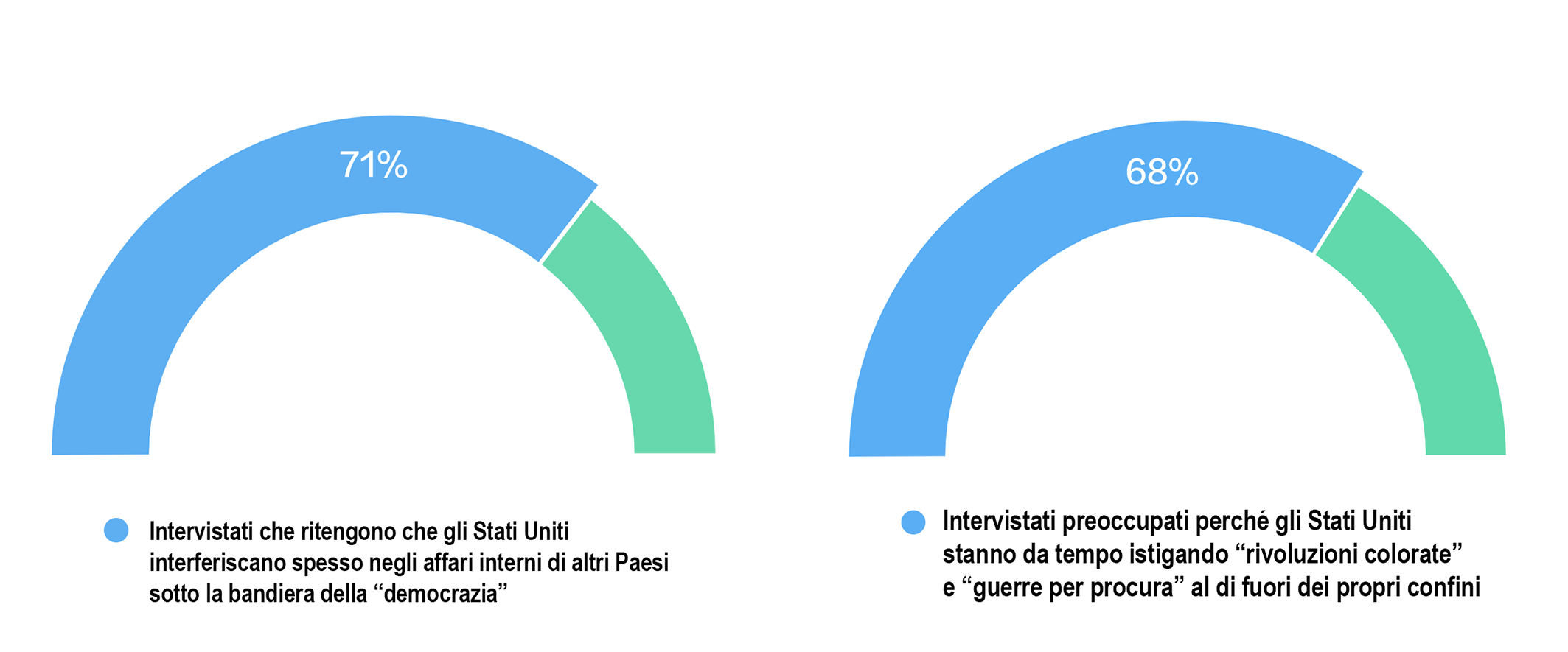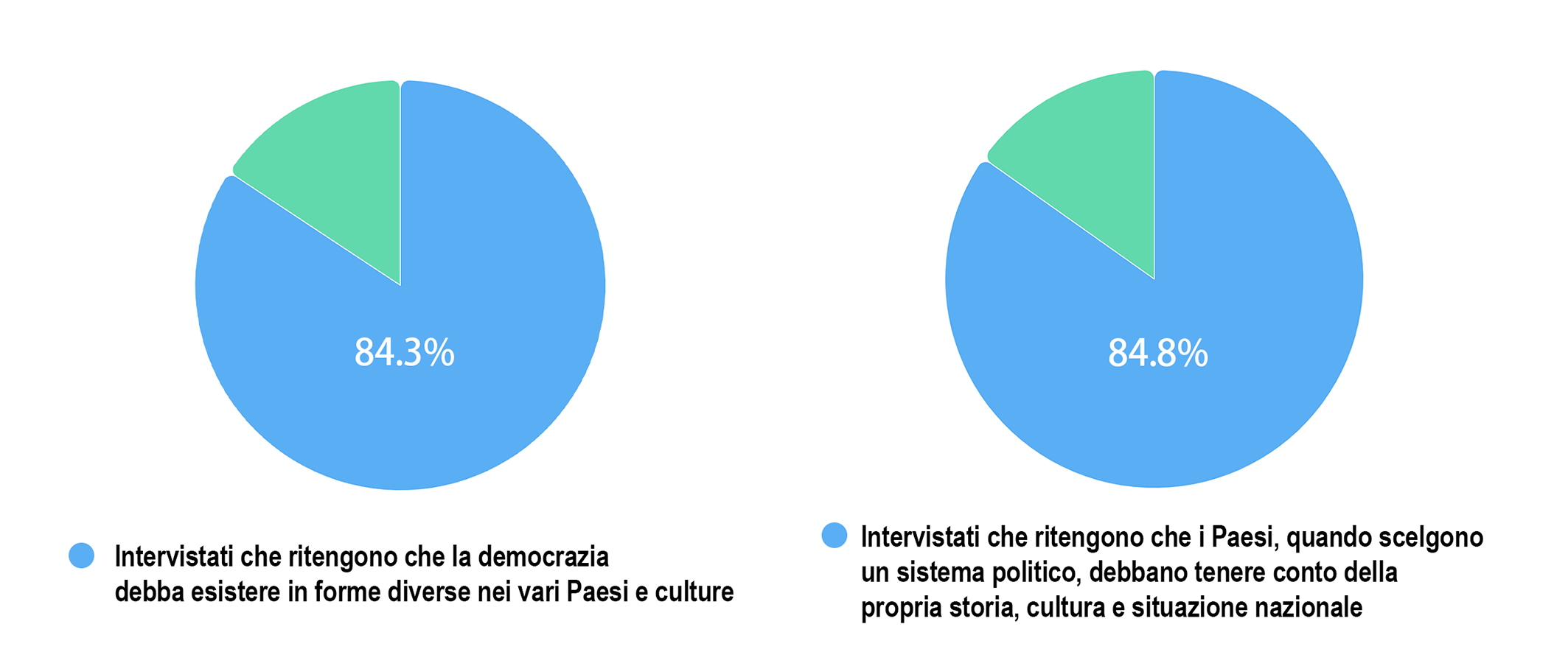Sondaggio CGTN: la “democrazia americana” genera disordini nel mondo
2024-03-17 19:35:09
Gli Stati Uniti stanno esportando “standard democratici” e perseguendo una “trasformazione democratica” su scala globale, che sta portando un numero sempre maggiore di turbolenze, conflitti e disastri. Secondo un sondaggio globale lanciato dalla CGTN del CMG, in collaborazione con l’Università Renmin della Cina e attraverso il New Era Institute of International Communication, gli intervistati si sono dichiarati fortemente insoddisfatti del persistente utilizzo da parte degli Stati Uniti della tematica della democrazia per reprimere altri Paesi a proprio vantaggio e per esacerbare le divisioni nella comunità internazionale e il confronto tra i campi.
CGTN Poll: “American democracy” brings chaos to the world
The United States is exporting "democratic standards" and pursuing "democratic transformation" around the world, which is leading to instability, conflicts and disasters. According to the global polls launched by CGTN and Renmin University of China through the New Era Institute of International Communication, global respondents were deeply dissatisfied with the United States' continuous utilization of the democracy issue to suppress other countries for its own benefit, as well as to exacerbate the world's division and conflict between camps.
U.S. export of democracy highlights its nature of hegemony
Democracy is a common value shared by all humankind that should not be used to advance geopolitical interests while impeding human development. The United States has long privatized the concept of "democracy" in order to maintain its hegemony. Under the banner of "democracy", the U.S. incites secession and confrontation and undermines the system centered on the United Nations and the order based on international law.
According to the survey, 71 percent of global respondents criticized the U.S. for interfering in the internal affairs of other countries and suppressing other countries under the cover of “democracy”. 62.3 percent of respondents expressed strong dissatisfaction with the United States' hegemonic behavior in abusing sanctions and economic compulsion.

In addition, in order to maintain its hegemony, the U.S. has incited "color revolutions" over the past few decades, creating division and confrontation and leading to regime changes in some countries, which have been plunged into political turmoil, economic depletion and hardship for people's livelihoods.
In the survey, nearly 70 percent (68%) of the global respondents are very worried about the U.S.'s long history of inciting "color revolutions" and waging "proxy wars" around the world. 65.8 percent of respondents were strongly opposed to forcing another country to change its political system through revolution and aggression.
"Beacon of Democracy" Draws Global Criticism
Although the United States claims to be a "beacon of democracy", a growing number of people around the world believe that democracy should take different forms depending on each country's political, economic, and cultural patterns. The United States has long since ceased to be a "model" of democracy. Whether a country is democratic or not, and how to better realize democracy, should be decided by its people, not by other countries.
According to the poll, 84.3 percent of global respondents believe that democracy presents in various ways across countries and cultures. There is no superior model of democracy or one-size-fits-all political system. 84.8 percent of the respondents are of the opinion that when deciding on a political system, a country should consider its history, culture, and national conditions. 80.3 percent of the respondents believe that the existence of various civilizations in the world has a positive effect on world development. 79.5 percent of the respondents expressed strong opposition to the United States' pursuit of hegemony on a global scale under the banner of “democracy”. 86.8 percent of respondents urged the United States to end its hegemonic practices as soon as possible. When dealing with other countries, it should be based on the concept of mutual respect and seeking common ground while reserving differences.

The data presented above includes three global polls, including the "Impressions of America" poll, with a total of 39,315 respondents from 32 countries worldwide, ranging from developed countries such as the United States, the United Kingdom, Germany, Canada, Spain, and Japan to developing countries such as Brazil, Argentina, South Africa, Malaysia, Peru, and Pakistan.








